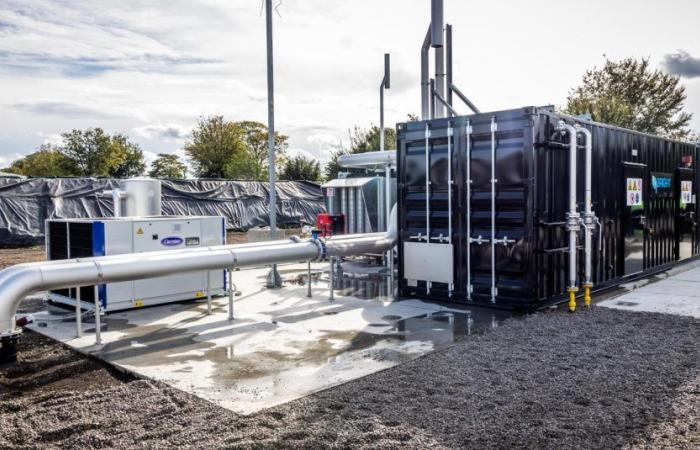French energy giant Engie is absorbing Biogas Bree, a Flemish pioneer in the production of biomethane, also known as green gas. Engie sees great potential for the future.
Engie announces the acquisition of Biogas Bree, the leading producer of green gas in Limburg. This is its first biomethane production unit in Belgium. After its recent operations in the Netherlands and England, this acquisition from the Schelfhout family strengthens Engie’s presence on the European renewable energy market. The amount of the transaction has not been disclosed.
The company is already a major player in this sector, with more than 1 TWh of annual capacity spread over 22 units in France, 2 in the Netherlands and 4 in England. The acquisition of Biogas Bree contributes to its goal of producing 10 terawatt hours of biomethane per year in Europe by 2030.
“Engie firmly believes in the complementarity between green electrons and green molecules. Biomethane is an essential link in moving towards a low-carbon society.
Vincent Verbeke
CEO of Engie Belgium
“Engie firmly believes in the complementarity between green electrons and green molecules. Biomethane is an essential link in moving towards a low-carbon society. It will help create a sustainable, reliable and affordable energy system, reducing dependence on imports and improving the integration of variable renewable energy. We are delighted to collaborate with Biogas Bree and to retain their expertise within the project,” suggests Vincent Verbeke, CEO of Engie Belgium in a press release.
Food waste and manure
Since 2013, Biogas Bree has transformed food waste and manure from breeders into biogas. After an investment of more than 3.5 million euros, the company managed to switch to the production of biomethane which is injected into the natural gas network. Biogas Bree has been injecting 800 cubic meters per hour into the natural gas network since the beginning of October. The unit has an annual production capacity of 68 GWh, equivalent to the consumption of 5,800 households of 4 people.
Biomethane
Biomethane is produced by biogas purification. It has properties similar to those of natural gas and can be directly injected into the existing network. Biomethane is a renewable gas that significantly reduces CO2 emissions because the sources used to produce it (waste and manure) are continually renewed.






